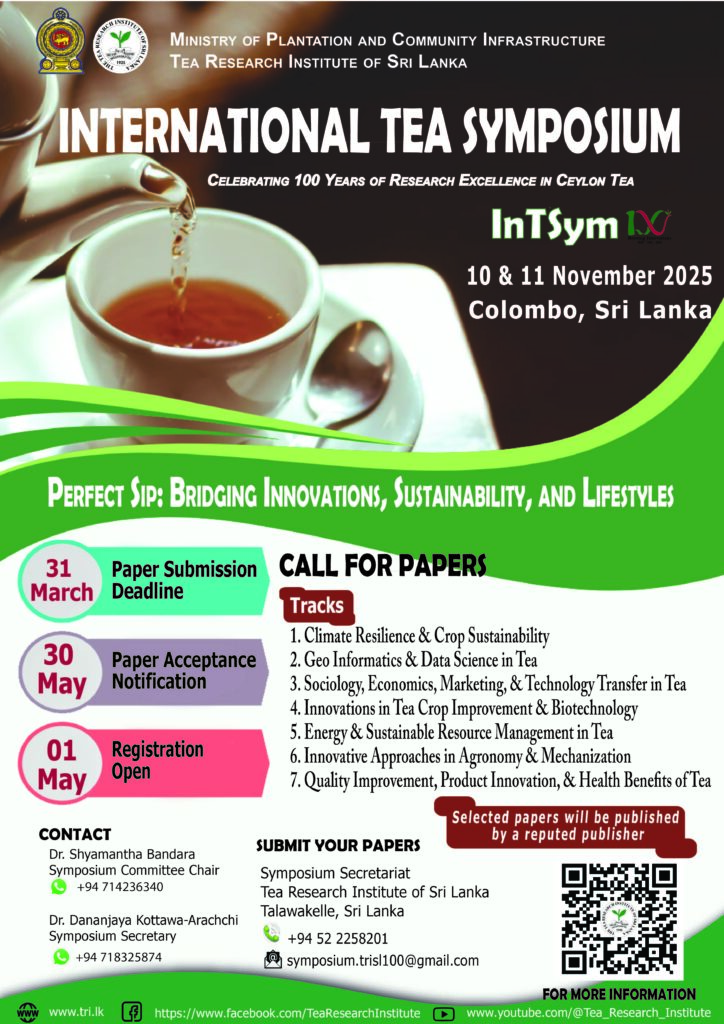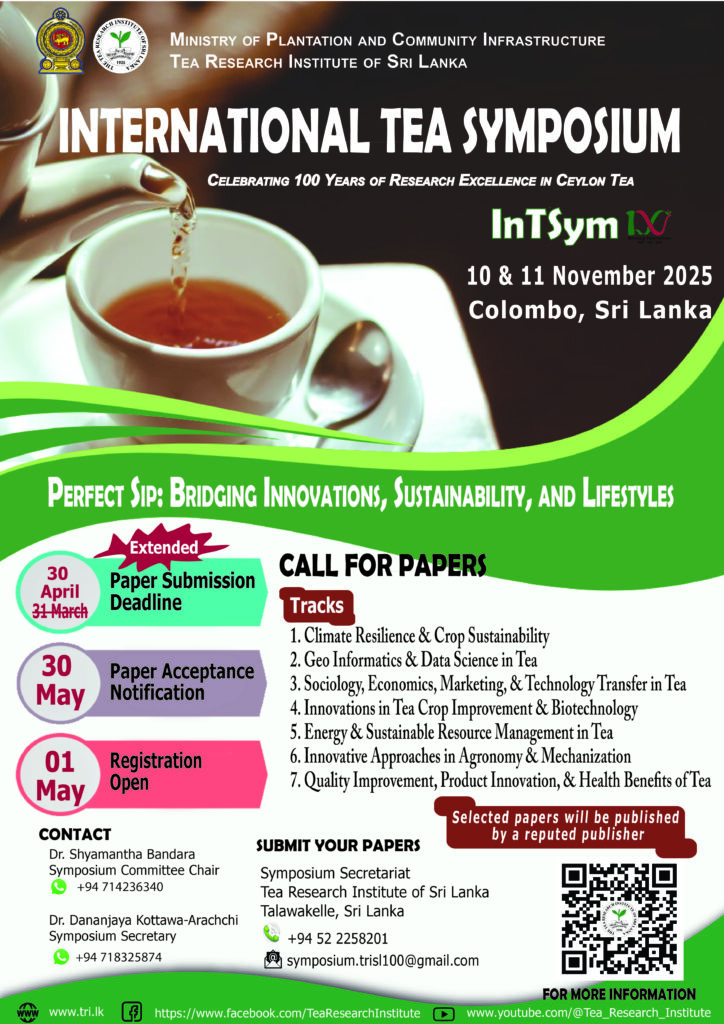Manuscript Submission
Manuscript Submission
The International Tea Symposium (InTSym100), organized by the Tea Research Institute of Sri Lanka as part of its Centenary Celebrations (1925–2025), invites researchers, academics, and professionals to submit manuscripts for presentation and publication.
Submission Guidelines
- Manuscripts must be original and unpublished.
- The full paper should follow the prescribed template.
- All submissions must be in English.
- Maximum length: Please refer the Manuscript submission guideline [PDF]

Downloadable Template

Important Dates
- Submission Deadline: 10th October 2025
- Notification of Acceptance: 25th October 2025
- Final Manuscript Submission: 5th November 2025
How to Submit
- Forward your manuscript to the symposium.trisl100@gmail.com
- Ensure all author details and affiliations are clearly stated.
- For any queries related to submission, please contact:
InTSym100 Secretariat
Tea Research Institute of Sri Lanka
Talawakelle
22100
Sri Lanka
052 2258201 (Ext. 350)
Manuscript Submissions Closed
CTA
Symposium Tracks
Explore the seven thematic tracks of the International Tea Symposium (InTSym100).
Submissions are invited under the following areas:
Exploring advances in plant breeding, genetic resources, and biotechnology to develop high-yielding, quality-enhanced, and stress-tolerant tea cultivars. This theme highlights how science can shape the next generation of tea science and tea plantations.
Trends in Tea
Examining global tea markets, trade dynamics, branding strategies, and consumer preferences. This theme focus on how tea producers and exporters can remain competitive and adapt to evolving international trends.
Showcasing research and technologies aimed at improving tea quality, value addition, and diversification of tea-based products. This includes novel blends, specialty teas, packaging innovations, and quality assurance systems.
Addressing the social dimensions of the tea industry, including gender equity, labour welfare, community development, and cultural heritage. This theme explores how inclusive practices strengthen the sector.
Highlighting eco-friendly and science-based solutions to manage pests and diseases in tea cultivation. Theme include Integrated Pest Management (IPM), bio-control agents, reducing chemical inputs, and application of AI in crop protection.
Crop Sustainability
Focusing on research and strategies to adapt tea cultivation to climate change. This includes sustainable farming systems, water and soil management, and environmental friendly practices to safeguard the future of tea.
Exploring pathways to bring research outcomes to the field. This includes extension methods, stakeholder engagement, digital tools, and capacity building to ensure innovations reach growers and factories effectively and efficiently.

